The name comes from the verb przepalać, which means to overheat, blow, or scorch. For instance, when a lightbulb (żarówka) blows out, the verb of choice to chronicle the event is “przepalać” (with the reflexive “się” added to confuse foreigners). Likewise with a fuse — they’re still fairly common in Poland and in much of Europe, with the old buildings that still have old wiring.
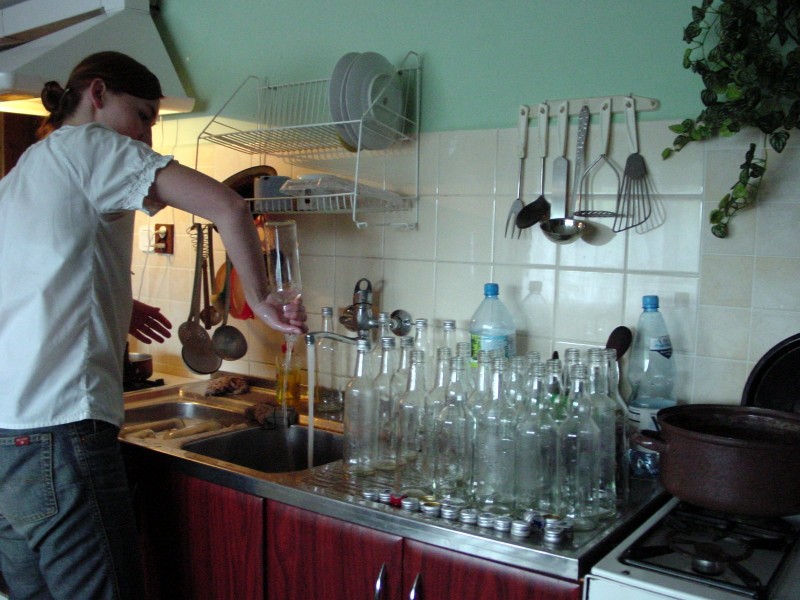
It also means “scorch,” though, as in to scorch sugar, as in to caramelize sugar. It’s from this that the name “przpalanka” comes from.
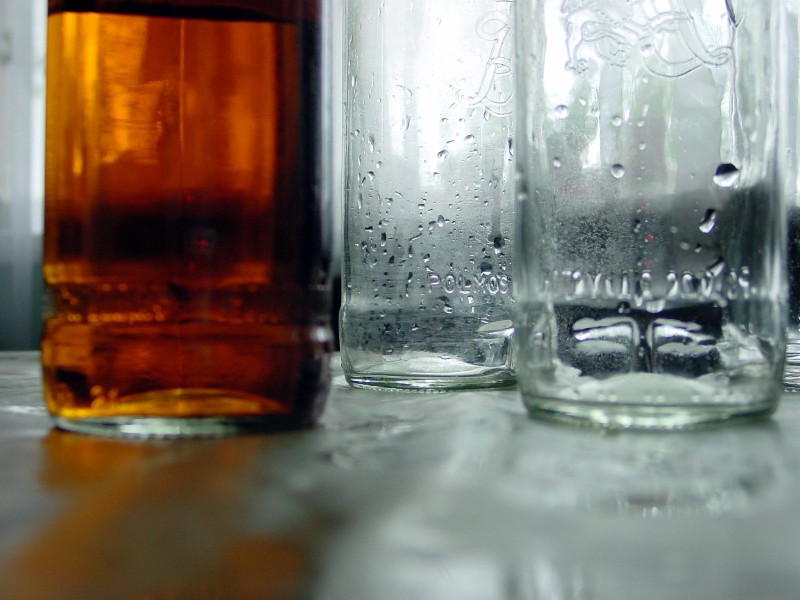
I first encountered przepalanka when my neighbor, a fellow American who was getting married in early 1997, invited me over for a Friday evening game of chess. I still didn’t know how to play chess, and he less so. We were basically just moving pieces around without any sense of strategy, but we could chat. And so when I entered, he greeted me with a strange declaration: “Look, we made vodka!”
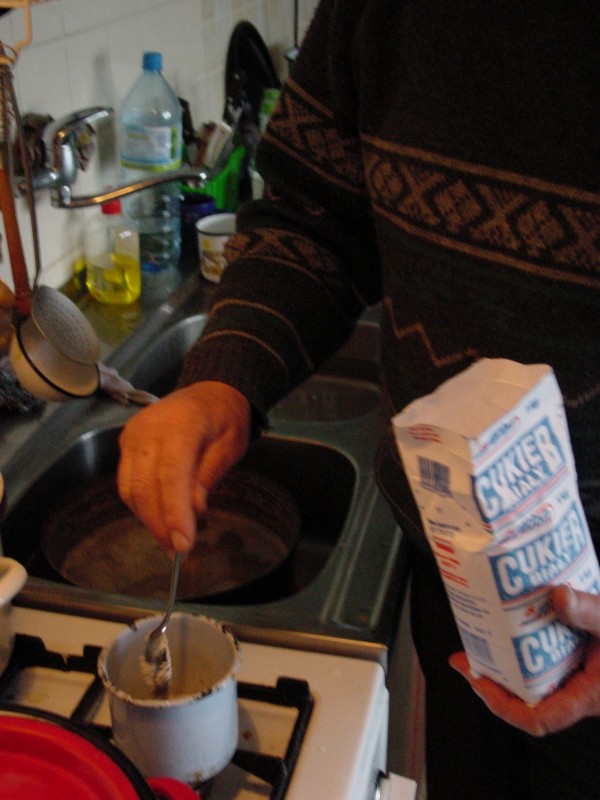
We made it for our wedding, too. And it was the result of a jolt of terror during the wedding celebration.
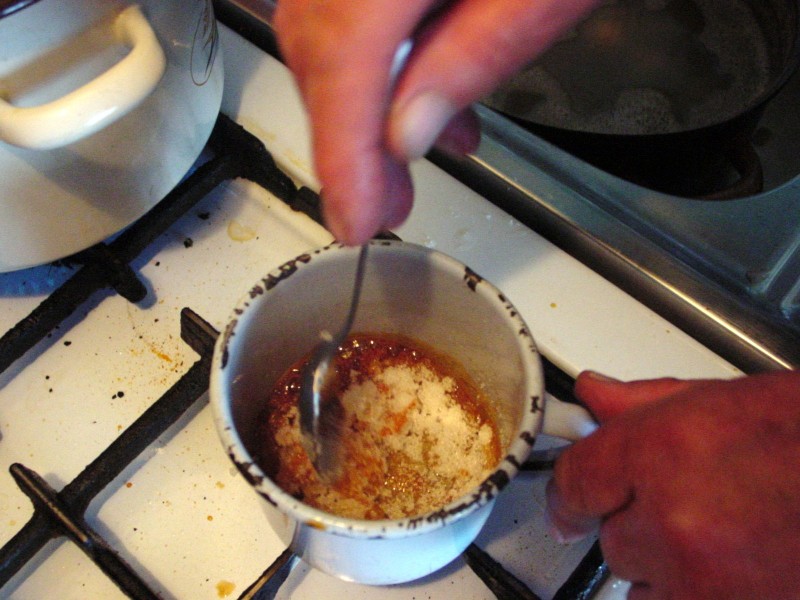
“We’re about out of vodka!” K proclaimed at about ten in the evening, when the party was just getting started.
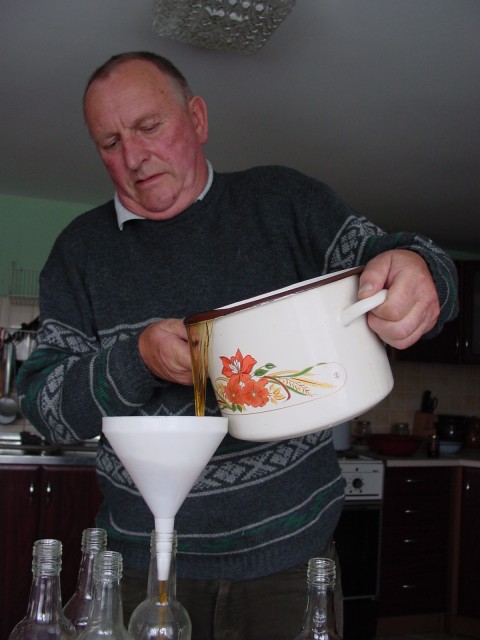
Fortunately, she just meant przepalanka — else it would have been the end of the party.
0 Comments